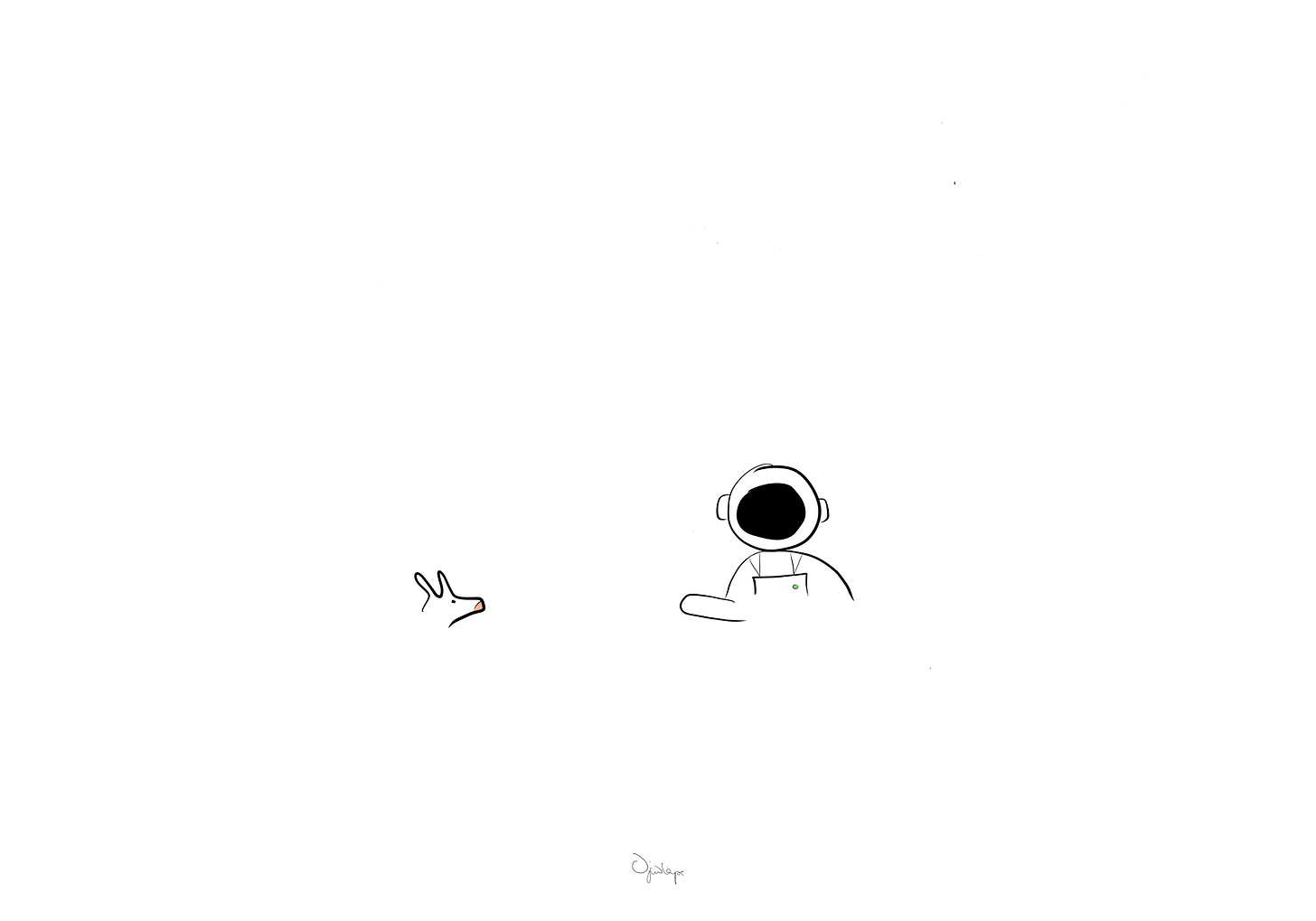Our senses are restricted
Or is it our minds?
I first came across the German term Umwelt (or ˈo͝omvelt) in my January read (Ed Yong’s An Immense World) and I felt so seen.
Here was a concept that echoed a frustration I had often encountered online.
Picture this: we see a clip of an infant who grabs the delivery man’s hand tightly and we ooh and ah and we see comments on how that means she really likes the sweet old man. Or, less so, human: two ants who prod at each other as they trudge away or toward the crime scene of dashed sugar granules on the kitchen counter, and how we see hashtags on letting the singles breatheeeee.
— Umwelt: The context of environment to which an organism lives, such that nothing outside is remotely imaginable for them.
In other words, the ”world as it is experienced by a particular organism”. But this varies to degrees we think we can imagine.
And so, why do we feel the need to humanise every interaction — more specifically, adult-humanise? And not in the usual, jocular way (who doesn’t love a good meme?) but when these are genuinely believed. Does no other life experience count except ours or do we simply not know and often don’t bother to do the work to find out.
This reminded me of another concept:
— sonder: The profound feeling of realising that everyone, including strangers passing in the street, has a life as complex as one's own.
Is the lack thereof why we might not realise the baby’s “grasp of death” is a reflex (a normal developmental and neurological milestone) they can’t control? Or how — no — the ants aren’t kissing; their antennae are a huge part of their Umwelt which determines how they communicate, gather food and move in colonies for safety.
“The mosquito smells the alluring carbon dioxide on Rebecca’s (the human) breath and the aroma of her skin. It lands on her arm, ready for a meal, but before it can bite, she swats it away—and her slap disturbs the mouse. It squeaks in alarm, at a pitch that is audible to the bat but too high for the elephant to ear. The elephant, meanwhile, unleashes a deep, thunderous rumble too low-pitched for the mouse’s ears or the bat’s but felt by the vibration-sensitive belly of the rattlesnake. (The human) who is oblivious to both the ultrasonic mouse squeaks and the infrasonic elephant rumbles, listens instead to the robin, which is singing at frequencies better stunted to her ears. But her hearing is too slow to pick out all the complexities that the bird encodes within its tune.” — Ed Yong.
Yong’s said it better than me. I was just gonna say: there’s life beyond the human nose.




Great topic. It is our senses that are restricted. I view the brain and hence the mind as sort of a digital or neural twin of our senses. In other words the brain is a neural model of our senses. It's interesting to ponder over the possibilities of attaching a more powerful sense organ to a human brain. For instance if we swapped out the receptors in our nose with that of a dogs, would we suddenly start smelling at a 100x what we do now? Maybe not immediately but over time (say a generation) the neural twin in our head will start to model the new powerful sense organ and maybe our offspring will.
Other two terms like "Umwelt"are Merkwelt and Wirkwelt:
Jakob Von Uexküll coined the concept of “Umwelt,” which paradoxically supported achieving objectivity through the study of subjectivity. In his own words: “All that a subject perceives becomes his perceptual world [Merkwelt] and all that he does, his effector world [Wirkwelt].